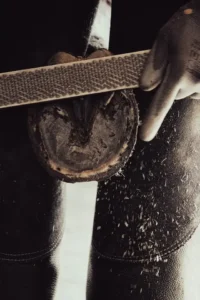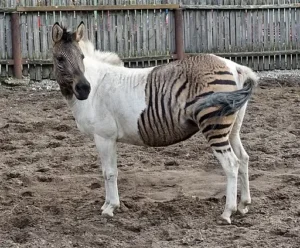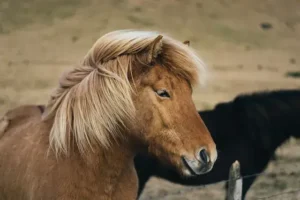Horses are strictly herbivore animals, which is why their teeth are known to be relatively harmless. This means that when horses bite, it is typically an emotional or situational response.
Most horse bites only leave scratches or tiny surface lacerations – and even then, such cases of biting themselves are rare. But once in a while, horse bite injury can turn out to be very critical.
So, can a horse bite your finger off? Yes, a horse has the potential to bite your finger off. Horses have pretty strong jaws, and prolonged biting can lead to the severing of fingers. A horse bite finger injury can be experienced by people feeding, petting, or interacting with a horse.
As an instructor or caretaker, you might want to stop a horse bite finger injury for yourself and other people by learning the proper behavior, response, and training helpful in disciplining these majestic creators.
When and Why Does a Horse Bite Off Your Fingers?
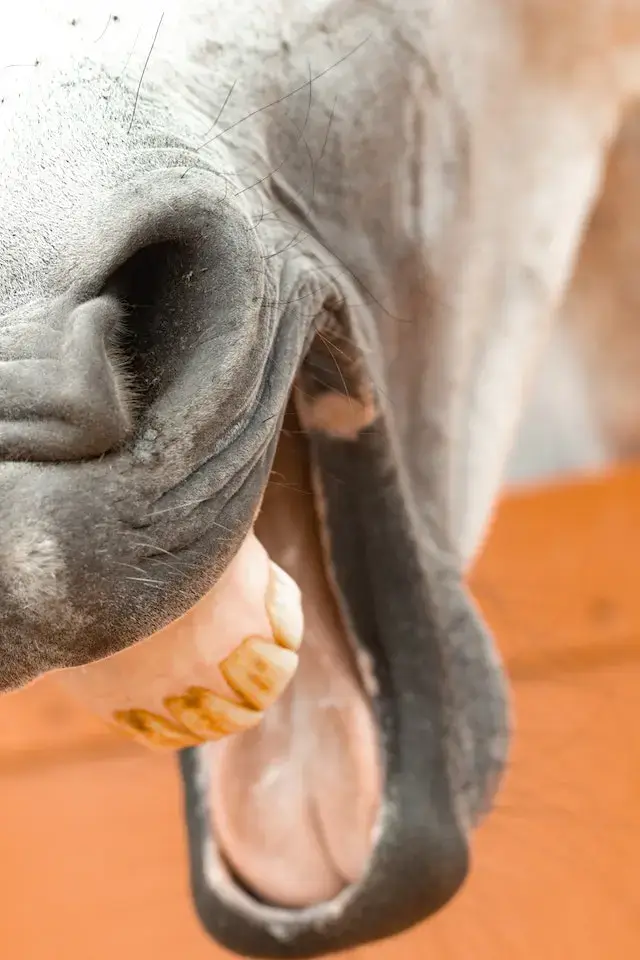
Can a horse bite your hand and leave permanent injuries? Horse bites are potentially dangerous and can lead to infection, diseases, and even amputation. To prevent horse bites, it is essential first to understand why they bite!
1. It is an act of love.
Horses bite other horses while playing or mating as an act of love. These bites are playful and show a caring attitude.
It is unnatural for a horse to extend this type of behavior towards its human caretaker – but some horses, especially young ones or those raised alone, will show this behavior towards you.
2. Fear or irritation
Horses can bite out of fear or frustration. This kind of bite can vary in intensity and, because they are unpredictable, can lead to serious wounds.
It is important to keep your horse in good health and mood as much as possible, especially if they are going to be around tourists or children. In the wild, horses bite other horses to get them to move out of the way, share food, etc., so it is also a display of dominance.
3. Excitement (for food)
The most common reason behind a horse bite finger injury is food. Only an expert individual must try to feed a horse. Even when your hand has not reached the horse’s mouth, it might lunge outwards in excitement and bite your hand instead of the food.
Horses have poor visibility. Because the horse is expecting to cut off a chunk of food and eat it, this bite is generally very hard. If the horse keeps biting and trying to tear the food, it will lead to a horse biting your finger off!
Must Read: Can Zebras And Horses Mate?
Is a Horse Bite Dangerous? Diseases & Infections
If a horse bite finger injury is serious, it can lead to permanent changes or disability in your limbs. Horse bites, in the least, leave scars on the hands of the victim. In worse situations, the bite is so deep that nerve damage, peripheral nerve injury, and immobility can affect your fingers.
Horse saliva contains microbes like actinobacillus, streptococcus, etc. The infections can be local or spread throughout the body of the individual within as less as 24 hours.
Primary medical care is essential within a few minutes of the injury to best treat a horse bite. Diseases like rabies and stomatitis are also spread through horse bite injuries.
How Can Horse Bites Be Prevented?
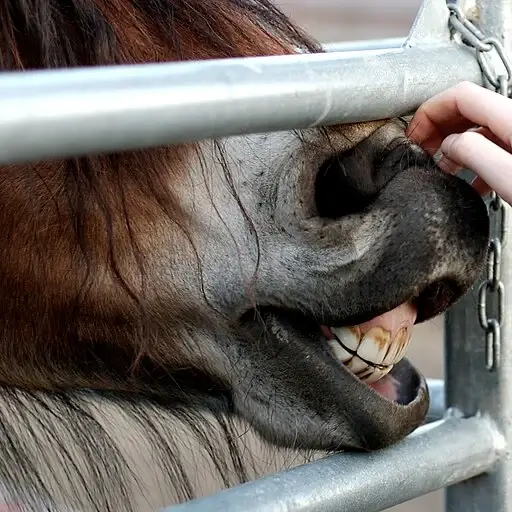
Horses with a difficult past, orphaned horses abused horses, or injured horses are more likely to bite you. When they are extremely uncomfortable, tired, hungry, or injured, they might impulsively bite your hand as a way to communicate. Here is how to train your horse to prevent horse bites.
- Train your horse to stop by instantly commanding it to back away from you and, at all times, back away from them to cut communication. Create pressure at its front using your hand and the lead rope. Avoid touching the face at all costs.
- Avoid using your hands directly to feed your horse because this will increase your chances of getting bit every time. Biting because of food is unintentional.
- Circle driving with the horse whenever it is trying to bite you can be a great distraction. Further, it requires the horse to give up a bit of control to the trainer.
- Classical conditioning in animals can help them stop any behavior. Every time they try to bite you, respond by giving them a slightly uncomfortable stimulus. Don’t be aggressive, and don’t let them know it is you who is applying the stimulus.
- The first few times the horse is biting you, all you need to do is stay cautious and rub the muzzle hard enough. Keep out of its biting range. This is a calming exercise that will stop the problem slowly.
Does a Horse Bite More Viciously When You Discipline It?
Impatience and anger on your part can agitate the horse and force it to react more aggressively.
- Never shout at your horse.
- Never hit your horse with your hand or a whip. Do not wound the muzzle or the face.
- Don’t distance yourself from the horse. Engaging with your horses is the best way to develop a kinship.
How Do You Treat a Horse Bite?
A horse bite must be treated immediately. Since it is a multi-level injury, leaving it alone will lead to progressive tissue damage – ending with a health concern that is much more serious. Treat a horse bite through proper first aid procedures and immediate medical testing.
- Avoid further contact: Avoid further contact at the moment. Command your horse to stand back and exit the area quickly and safely. The best thing to do is to let your body rest. Don’t use your hand for anything and rush for a first aid process as soon as possible.
- First Aid: Several first aid tips must be employed to treat a horse bite.
- Clean the wound thoroughly with soap and water.
- Sterilize the wound. You might need antibiotics, but unless you have a specific one prescribed to you, make sure you wait for the prescription of a health professional before taking any.
- Apply ointments on your wound and dry it. Cover with brand-new dressing or plaster. If you suspect any breakage, tie your finger to a support.
- You might need a tetanus shot if you have not had one in the last ten years.
- Visit to the ER: It is advisable to visit the emergency room as soon as possible after a horse bite finger injury has been sustained. With the help of proper medication and surgery, a severed finger can be restored. Alternatively, if you want to prevent further tissue damage, you must visit a health professional who can check for any infections, nerve damage, etc.
Recommended Reading: Do Horses Have Periods?
Final Words
In this blog, we have answered the question – can a horse bite your finger off? While such cases are occasional, it has been seen that horse bites have been suspended by people of all ages and genders, including young children. Healthy, happy, and situationally aware horses are least likely to bite a human being.

